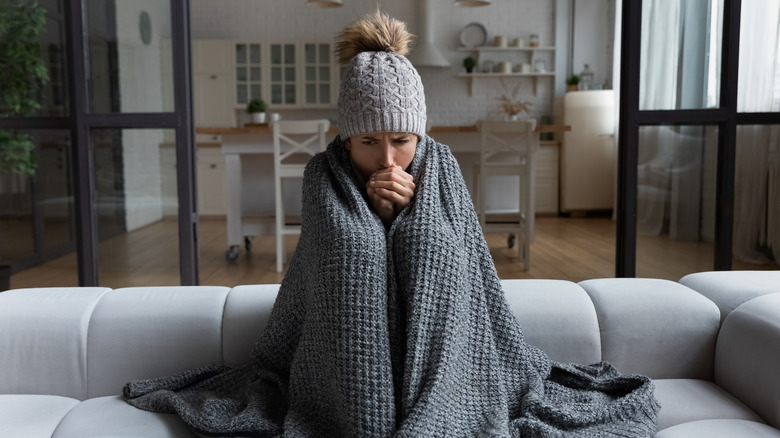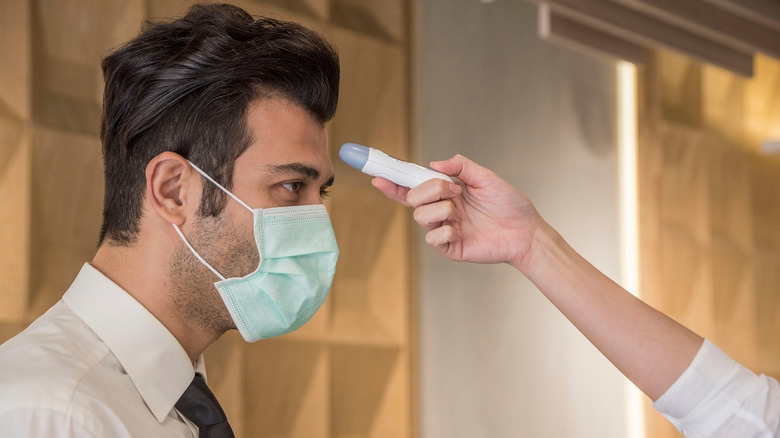Why Does Having A Fever Make You Cold?
Having a fever is one of the worst ways to feel bad. For many people, fevers don't only seem to drain their energy, but often they are additionally exhausting due to the chills and shivers that often accompany a fever. You may be wondering how you can be shivering and cold when you have a fever. The term "fever" is used to describe an internal increase in body temperature. According to the Mayo Clinic, the average body temperature is around 98.6 degrees Fahrenheit. A fever occurs when the internal temperature rises to 100 degrees or higher.
Medically known as pyrexia, a fever is your body's first line of defense and action against illness. Fevers occur when the body is exposed to pyrogens, or fever-causing substances that can be present both inside and outside of the body, The Healthy explains. The pyrogens send signals to an area in the brain known as the hypothalamus, which controls body temperature regulation. These pyrogens trigger the body's response to raise the internal temperature, as most bacteria, viruses, and other pyrogens are temperature sensitive and cannot survive for long in elevated temperatures (via Scientific American).
Why does a fever make you cold?
So what is it about a fever that makes you cold? Once a fever has begun, the brain is sending a signal to the body to create internal heat in some way. Healthline explains that shivering is a muscle response that occurs when muscles contract and relax in a rapid succession in an attempt to warm the body. This action is involuntary and generated directly by the signals received from the hypothalamus to help bring the body's physical temperature up to the temperature the brain has designated.
The shivering response itself is often associated with feeling cold, causing you to reach for your blankets. Additionally, as the brain is sending out a signal that the body temperature is too low, the feeling of cold is experienced while the body actively signals to raise its internal temperature (via The Healthy). When you're feeling a bit feverish, shivering and shaking while feeling awful, your body is working to fight the pyrogens that have created a need for increased body temperature.
How can you treat a fever?
According to The Healthy, once the brain has determined that the pyrogens are diminishing, the hypothalamus ceases the signals to the body and the fever subsides. In many cases, this causes the individual to experience sweating as the fever breaks.
Fevers are typically easily managed at home without the need to seek professional medical help. However, if a fever becomes higher than 103 degrees, or continues for several days, you may want to see your doctor, according to Healthline. One way to help reduce the symptoms experienced with a fever is to get plenty of rest and to stay hydrated. Over-the-counter pain relievers like acetaminophen and ibuprofen can also be used to help bring down a fever as well. If you or a loved one has a fever with other symptoms, such as confusion or severe abdominal pain, you should contact medical services to determine if an examination is needed.



